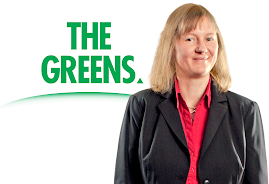It was alarming to see the proposed changes to Melbourne’s Urban Growth Boundary (UGB). Rather than driving changes to create a more compact city, the state government’s proposed changes will see a loss of Melbourne’s “Green Wedges”. These are regions valued for the ecological services they provide and are prized for rich agricultural soils that provide a close source of food for Melbourne.
The expansion of Melbourne will create significant environmental damage, which will destroy wildlife, including endangered species and impact on vast areas of grasslands. Expanding our city will see the construction of even more freeways and roads and see the loss of prime agricultural land.
Allowing low density sprawl in Melbourne defies all sensible urban design principles and turns it back on sustainable transport land use. The creation of greater sprawl will reinforce the dependence and reliance of motor vehicle transport for those communities on the fringe. In a time of climate change and peak oil, it is not a time to sprawl our city, it is a time to compact it and make it a vibrant and liveable place to be.
We already have many areas of Melbourne that are poorly serviced by public transport, to consider increasing these regions fails our communities in their desire to access fast and frequent public transport and stop their reliance on motor vehicles for transport. Communities who are car dependent face increased costs as the price of petrol rises, causing severe limitations to the family budget. Car dependent communities also contribute to rising greenhouse gas emissions in the transport sector.
There is no need for the expansion of the UGB, higher densities are achievable within the current extent of the UGB. Much work has been done on this, depending on housing densities, already existing development land would supply Melbourne with opportunities for increased housing for the next 15 to 25 years.
The proposed changes in the south east of Melbourne will sound the death nell to agricultural activities close to this part Melbourne. This particular region is well placed to continue its significant contribution to agriculture and horticulture, with the Eastern Treatment Plant ensuring ongoing water supply for farmers and the rich soil providing a great basis for the production of food staples.
To consider covering up such a great agricultural asset with houses is a short sighted proposition. One of the keys to responding to climate change is to encourage food production close to consumers, to consider building over this land in the south east is foolhardy and shows a disregard for the true value of viable, rich agricultural soils.
I will be fighting against the expansion of Melbourne’s UGB, if it becomes a reality it will limit Melbourne’s ability to be a liveable and vibrant city. It will relegate future generations to a sprawling endless city, that will hinder opportunities for those on the fringe and create longer term social, environmental and economic impacts for our city.
Monday, August 3, 2009
Subscribe to:
Post Comments (Atom)






No comments:
Post a Comment